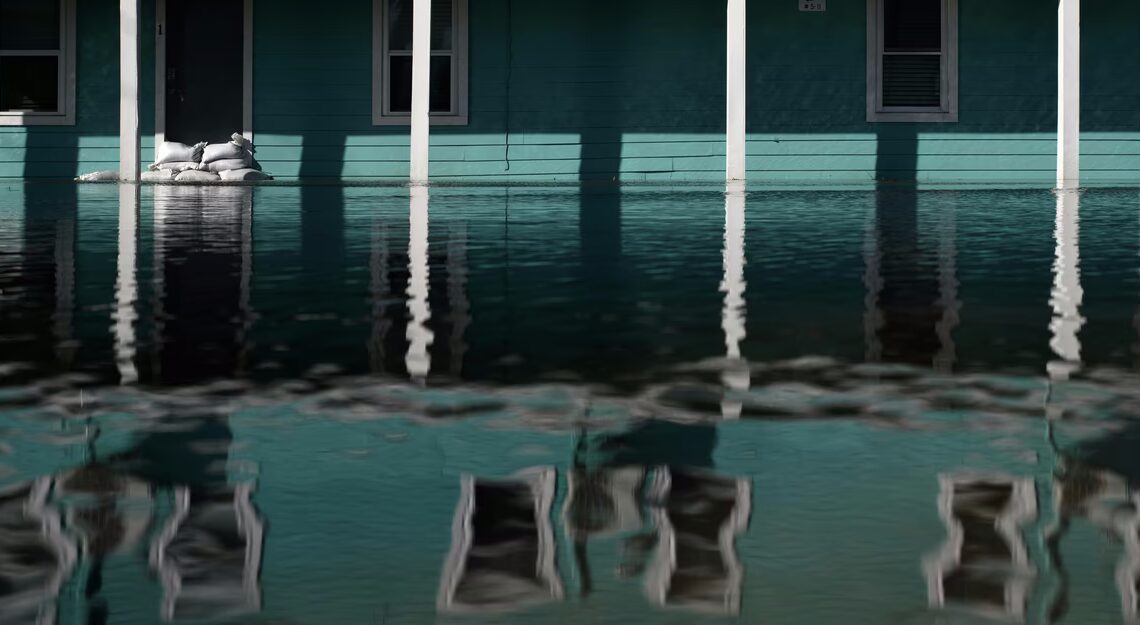When Bill Gates published his latest essay on climate change, the response was immediate. Many critics accused him of defeatism or saw the memo as another example of billionaires bending a knee to the climate denialism of President Donald Trump. (Trump himself was a fan.) Others told him to stop opining about climate change. “Respectfully, Bill Gates Should Shut Up,” read a headline by the online magazine Slate.
In his memo, the billionaire who once urged the world to “innovate our way out of a climate disaster” now seemed to be lowering the bar—arguing that global warming, while devastating, “will not lead to humanity’s demise,” and that the world’s climate-change strategy should focus on human welfare over temperature or emissions goals. That message struck a nerve in a movement that has fought for decades against the oil and gas industry’s multimillion-dollar campaign to fund climate denial and delay.
Gates released the memo as a message to “everyone at COP30,” the United Nations’ climate conference, which began Monday; one of the gathering’s key goals is to push nations to follow through on their existing emissions commitments. Gates didn’t say they shouldn’t bother, but he did suggest that focusing heavily on near-term emissions reductions may not help—especially for poor countries—as much as other strategies.
Gates would be wrong on that front; for some small island states, which face the imminent threat of being submerged by rising seas, climate change is humanity’s demise. But by dismissing his argument, many critics ended up downplaying a different kind of truth: Making emissions reductions the core climate strategy is not serving many of the people most affected by climate change.
Gates’s message is far from radical. In fact, leaders from the global South have been making a similar case for decades. Even the Association of Small Island States has argued that global climate commitments must prioritize human welfare alongside ambitious emissions reductions, especially from rich countries. Its representatives recognize that net-zero trajectories alone won’t help people survive the next storm or rebuild their home. They also need the resources—primarily the funding—to live through climate disasters and adapt to climate change’s consequences.
In wealthy countries, adaptation is often seen as a technical or an engineering fix: installing air-conditioning, restoring wetlands, building seawalls. In many places, though, climate adaptation is indistinguishable from efforts to improve human welfare. Better health care, for instance, can reduce deaths and disease after floods; diversified agriculture helps rural families withstand droughts. “Adaptation is not only about restoring riparian forests or seeking nature-based solutions; it’s also about adapting investments: exploring new credit lines, rethinking insurance, and declaring emergencies,” Brazil’s minister of the environment and climate change, Marina Silva, said at an event earlier this year. Gates puts it a bit differently: For poor countries, “development is adaptation.”
Several prominent climate figures argued that this view, at least as Gates articulated it, creates a false binary between cutting emissions and improving human welfare. The climate scientist Michael Mann and the writer and activist Bill McKibben both accused Gates of downplaying the threat that missing climate goals poses to developing nations and of privileging technological optimism. The climate scientist Zeke Hausfather, while agreeing with some of Gates’s points, argued that climate and development aid are not “inherently zero sum.”
Even if they aren’t inherently in competition, in practice, they often are. This year’s COP is meant to be as much about adaptation funding as about emissions reductions in part because climate funding, especially for adaptation, faces a crisis. Less than 10 percent of global climate finance went to adaptation in 2022, an analysis by the Climate Policy Initiative shows. But, although funding emissions-mitigation efforts anywhere in the world benefits the countries paying for that work, funding for local adaptation efforts has consistently been a challenge, André Corrêa do Lago, the COP30 president, has noted.
International aid more generally is also in crisis. Official development assistance fell 7 percent in 2024, and likely more this year, because of the disastrous demolition of USAID. Adaptation is sometimes forced to compete for limited funds: The $100 billion that developed countries provided in 2022 to help developing countries address climate change came with catches, such as diverting other development aid for this purpose. Much of that money also comes as a loan—in some cases only adding to vulnerable countries’ debt crisis. (For every $5 that developing countries receive, they send $7 back in repayment.) Barbados’s prime minister, Mia Mottley, has been especially vocal about this inequity, calling for global development finance to be restructured so that the climate-vulnerable countries that need it most aren’t being held back from, in her words, “creating decent opportunities for billions of people.”
Some of Gates’s critics, including McKibben, also pointed to Hurricane Melissa, which slammed into Jamaica right when the memo came out, to suggest that climate change is the defining threat to developing nations.
Every tenth of a degree of warming will compound the damage from climate change. But, as the Intergovernmental Panel on Climate Change notes, climate disasters don’t devastate in a vacuum. Rising emissions create conditions that intensify storms (Melissa was a textbook example), but their human toll is amplified by factors such as the lack of health care, insurance policies, and other social protections—in other words, measures related to development and human welfare. Disasters hit poor economies 10 times harder than rich ones, relative to GDP. Of course, GDP is a poor indicator of the human suffering and inequality caused by these storms. Then again, so are measures of the carbon in the atmosphere.
Reducing emissions globally is crucial to minimizing the impacts of climate change, but so, too, is spending more money on improving agriculture, or waste management, or rural access to health care. These measures will make places like Jamaica (which contributes just 0.02 percent of global emissions) more effective at weathering the storms to come than reducing their relatively tiny fraction of global emissions will, particularly as countries such as the United States and China continue to release greenhouse gases at massive scale. Yet even in less developed countries, more than half of climate funds can end up going to mitigation, Mizan Khan, a former leader of the International Centre for Climate Change and Development in Bangladesh, has pointed out. “This should not be our priority, as we are nano-emitters,” Khan said in 2024.
Although Gates argued for human welfare as a climate strategy, he stopped short of what a growing movement is now demanding. Leaders such as Sônia Guajajara, a global environmental activist and the minister of Indigenous Peoples in Brazil; the UN; and organizations such as the Right Here, Right Now Global Climate Alliance are advocating for a rights-based approach to climate policy, one grounded in legal protections and obligations, not just technical or financial fixes. A rights-based approach means ensuring that Indigenous communities are not displaced by green energy projects, and that labor protections guarantee that workers won’t have to toil in deadly heat waves.
What Gates’s memo does ignore, somewhat glaringly, is power and politics. Investments in climate tech don’t work when your president scraps the Inflation Reduction Act, the single largest public investment in U.S. history in both emissions reduction and renewable energy jobs. The inequities baked into global finance, agribusiness expansion, and fossil-fuel dependence are not peripheral to the climate crisis; they define it. Without confronting those asymmetries, even human welfare risks becoming another hollow metric.
Gates’s argument may unsettle those who see progress only in gigatons and degrees. But the world’s poorest nations have long defined success in more human terms, even as they have pushed for ambitious emissions cuts from rich countries. This is the framework that matters most immediately to those most vulnerable to a rapidly heating world: how to endure, recover, and build more stable lives. For decades, they have been saying the same thing—but few listened.
The post What the Climate Establishment Missed About the Gates Memo appeared first on The Atlantic.




